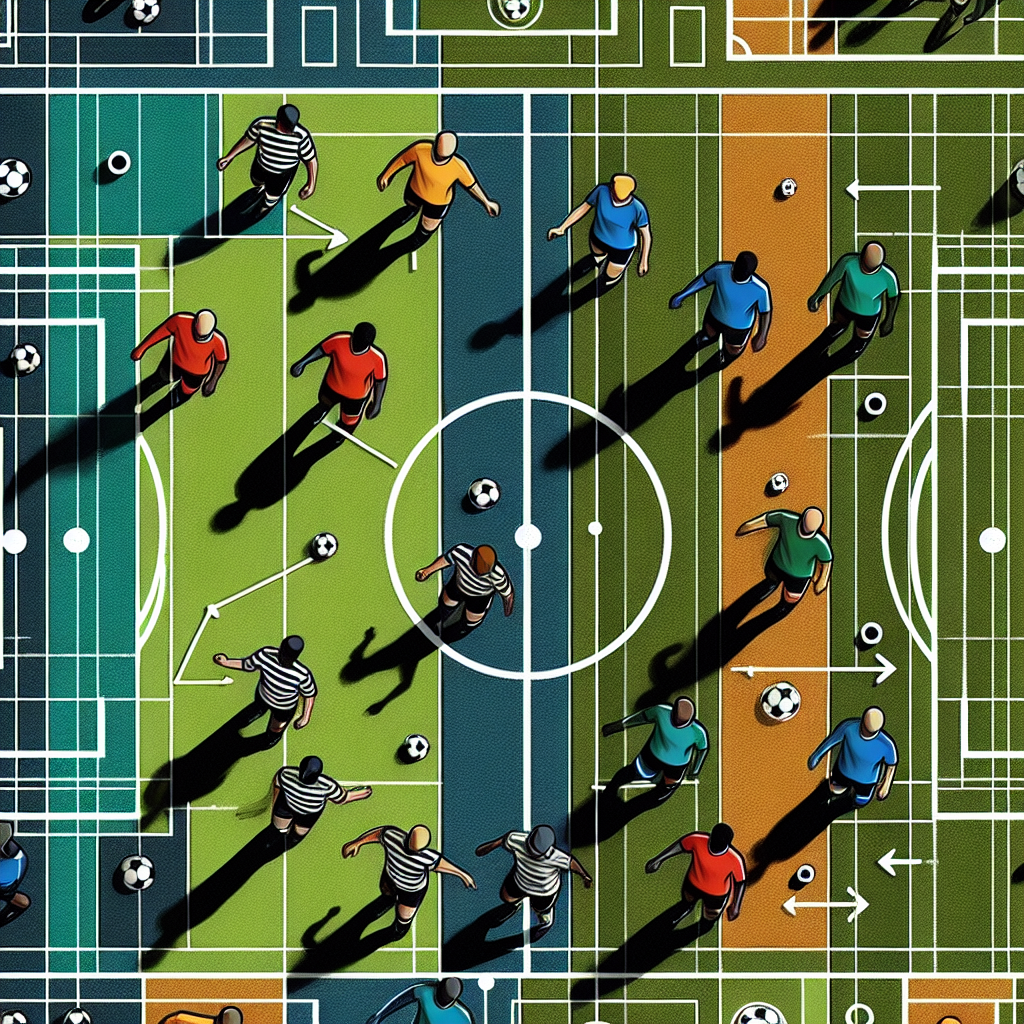
The Future of Sports Rankings: Trends to Watch
In 2025, the world of sports rankings is undergoing a remarkable transformation driven by advancements in technology, data analytics, and fan behavior. As we explore the future of sports rankings, we will highlight upcoming trends that are revolutionizing how players, teams, and leagues are evaluated and ranked. Understanding these trends is crucial for fans, analysts, and stakeholders who want to stay at the forefront of the sports landscape.
AI and Machine Learning Transformation in Sports Rankings
Artificial Intelligence (AI) and machine learning technologies are poised to reshape sports rankings in profound ways. As data becomes increasingly abundant, AI algorithms can analyze complex datasets to deliver more accurate and nuanced rankings. Instead of traditional metrics like win-loss records, AI can consider a multitude of factors such as player health, performance consistency, and even mental health analytics. This shift allows for a more holistic view of a player’s contributions to their team.
Moreover, the personalization of AI is becoming a game changer for fans and analysts alike. With machine learning models adjusting in real-time based on ongoing performances, fans now have the ability to access rankings that can adapt quickly to the latest games and events. This continual evolution not only enhances the viewing experience but also offers deeper insights into the dynamics of sports. As a result, rankings are no longer static but dynamic systems that evolve, providing fans with a more engaging way to connect with their favorite teams and athletes.
Data Analytics: The New Frontier in Sports Evaluation
Data analytics has already had a significant impact on how sports are ranked, but its role will only become more critical in the coming years. In 2025, advanced analytics platforms are being used to gather and interpret vast amounts of data from various sources, including social media interactions, player statistics, and in-game analytics. This comprehensive data collection enables ranking systems to factor in elements that were previously overlooked, such as how fan engagement or social media presence can influence a player’s value or popularity.
This data-centric approach not only benefits rankings but also drives team strategies and player development. Teams are increasingly utilizing data analytics to identify potential drafts and trades based on predictive models, giving them a competitive edge. Moreover, as fan engagement metrics are integrated into ranking systems, clubs can align their marketing and outreach initiatives to better reflect their audiences, further enhancing the relevance of rankings in today’s sports culture.
The Role of Blockchain in Sports Rankings
As sports continue to embrace digital innovation in 2025, blockchain technology is emerging as a transformative force within sports rankings. With its decentralized nature and capability for transparent transactions, blockchain allows for secure data collection and management. This transparency can help mitigate issues such as data manipulation, which has historically plagued rankings across various sports.
In addition to integrity, blockchain enhances fan engagement by allowing fans to contribute to rankings through decentralized voting systems or tokenized platforms. This gives fans a sense of ownership and influence over rankings, creating a more participatory experience. The engagement strategies consider not just traditional voting methods but also leverage fan loyalty programs, where fans earn tokens for interaction that they can use to influence rankings or access exclusive content. Such initiatives not only enhance transparency but also create a community-driven ranking environment.
Furthermore, the use of smart contracts on blockchain platforms enables real-time updates and automated ranking changes based on game outcomes or player performances. This can make rankings more accurate and immediate, benefiting fans, teams, and players alike.
Social Media and Its Influence on Sports Rankings
In 2025, social media continues to be a powerful tool that shapes sports rankings through real-time interaction and engagement between fans and players. Teams and leagues are increasingly considering social media metrics—like follower counts, engagement ratios, and popularity indexes—when calculating player rankings. This marks a notable shift, indicating that the fan base and public perception play crucial roles alongside traditional performance statistics.
Social media platforms are also giving rise to new metrics that quantify the impact of players and teams in popular culture. The “social ROI” of an athlete—a measure of their influence online compared to their on-field performance—has become a staple in ranking formulas. Those who perform well digitally find themselves rising in ranks as advocates and influencers within the sports community, thus creating a parallel ranking system based on their popularity and marketability.
Additionally, the rise of platforms such as TikTok and Instagram has led to a new wave of athlete personalities, where endorsements, viral moments, and online content can drastically affect a player’s standing. The rapid dissemination of clips and highlights contributes to an athlete’s brand value, which is increasingly factored into official rankings. This evolution illustrates how intertwined performance and popularity are in modern sports and is a trend to watch as we move forward.
The Impact of Virtual Reality on Sports Ranking Systems
The advent of virtual reality (VR) technology in sports is set to redefine how fans engage with rankings in 2025. Current trends indicate that VR can enhance fan experiences by allowing them to immerse themselves in realistic simulations of games or training sessions. This not only offers a unique viewing experience but also enables fans to engage with athletes and experience rankings in an altogether different context.
For example, VR applications allow fans to “step into the shoes” of athletes, giving them a direct insight into performance metrics and individual play styles. By experiencing the skill level required to compete at high ranks, fans develop a deeper appreciation for rankings and the athletes behind them. As a result, fans are likely to become more invested in ranking systems that provide detailed breakdowns of each player’s performance within a VR setting.
Moreover, the integration of VR experiences into sports events and digital platforms can lead to innovative methods of sharing ranking information. Instead of traditional ranking lists, users may soon find themselves stepping into interactive VR environments where they can explore player rankings, stats, and achievements in a 3D landscape. This interactivity not only boosts engagement but also cultivates a deeper understanding of sports dynamics and player performances.
Emphasizing Diversity and Inclusivity in Sports Rankings
As we delve deeper into 2025, there is an increased focus on diversity and inclusiveness within sports rankings. The conversations surrounding representation in sports are not just limited to on-field performance but are extending into the realm of how rankings are formed and presented. Inequities in representation have prompted organizations and governing bodies to reevaluate their criteria, ensuring that rankings reflect a diverse range of talent.
This commitment to inclusivity means that new metrics are being introduced, looking beyond the traditional measures of success in rankings. For instance, rankings will begin to incorporate historical representation, contributions towards social causes, and outreach efforts into their evaluations of athletes and teams. Moreover, leagues are focusing on equitable representation from a demographic perspective, which communicates to fans the importance of inclusivity in sports culture.
These inclusivity efforts are not merely ethical but also align with emerging consumer expectations. Today’s sports fans are increasingly favoring teams and athletes who prioritize social justice and equality. Therefore, ranking systems that reflect and celebrate diversity are not only progressive but resonate well with modern individuals, potentially attracting more followers and engagement.
Conclusion:
The future of sports rankings is not limited to traditional performance measures but will embrace technological advancements, data analytics, fan engagement, and diversity. As AI and machine learning refine how we evaluate athletes, the influence of social media and blockchain solidifies the integrity of the rankings. Furthermore, the prominence of VR technology will encourage deeper fan interactions, while inclusivity initiatives signal a changing cultural landscape in sports. Surveillance of these trends will become vital as they impact rankings profoundly, shaping the relationship between fans, players, and the sport itself.
FAQs
What are the major trends shaping the future of sports rankings?
The major trends influencing the future of sports rankings include the integration of AI and machine learning for enhanced evaluation, the use of blockchain technology for data transparency, the influence of social media in shaping public perception, and the emphasis on diversity and inclusivity.
How is AI impacting sports rankings in 2025?
AI is revolutionizing sports rankings by analyzing complex datasets, considering a variety of performance factors beyond simple win-loss records, and providing real-time updates that tailor rankings according to ongoing performance trends.
How are social media metrics factored into sports rankings?
Social media metrics such as follower counts, engagement rates, and popularity indexes are increasingly factored into player rankings, demonstrating how an athlete’s digital presence can influence their perceived value and standing in the sports community.
Understanding Team Offensive Efficiency Ratings
16. Dezember 2025The Role of Advanced Stats in Evaluating Team Chemistry
16. Dezember 2025How to Interpret Team Defensive Metrics
16. Dezember 2025
Leave a reply Antwort abbrechen
-
How to Interpret Sports Rankings: A Fan’s Perspective
20. November 2025 -
Evaluating Education Reforms in Public Schools
9. Dezember 2025



